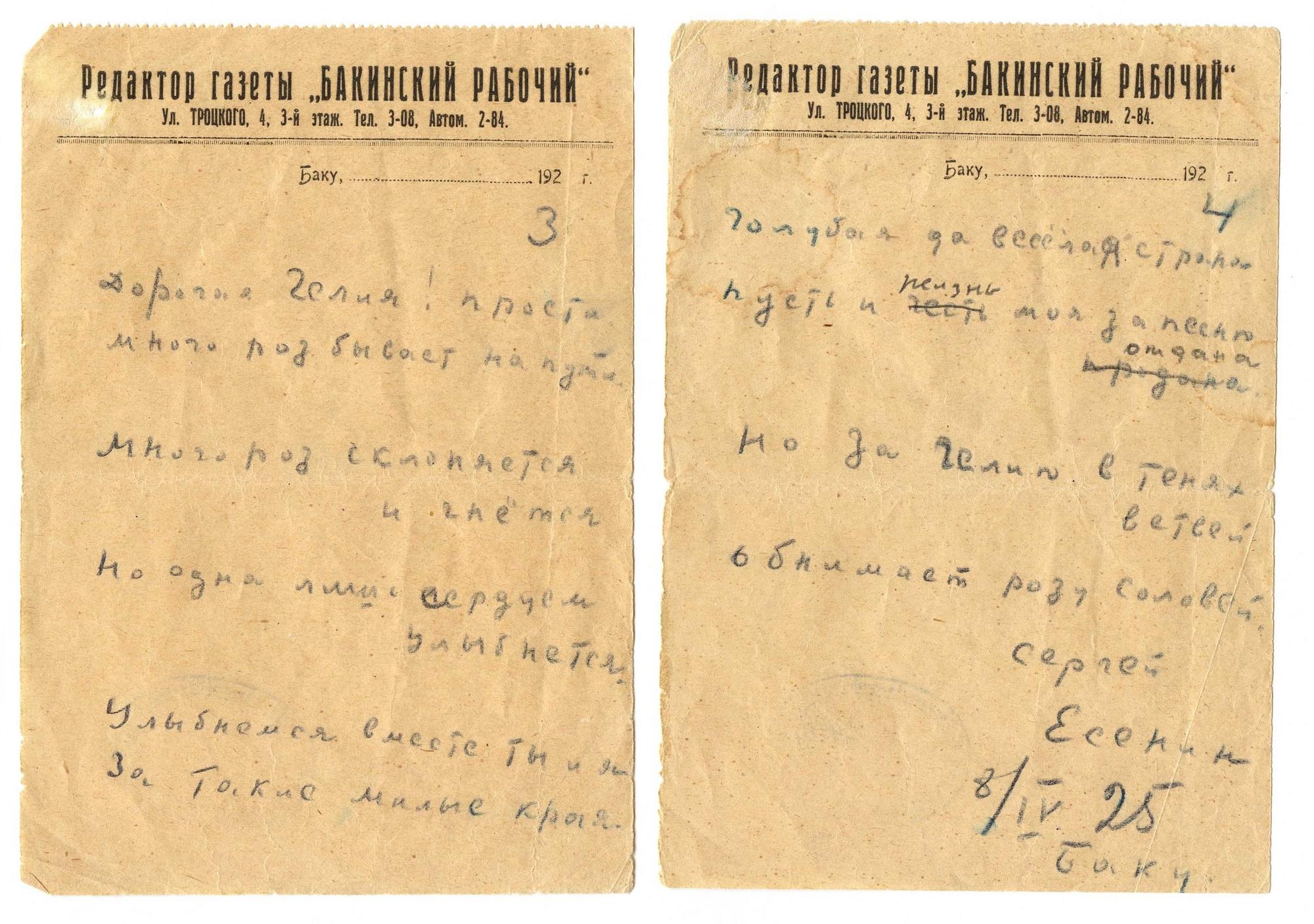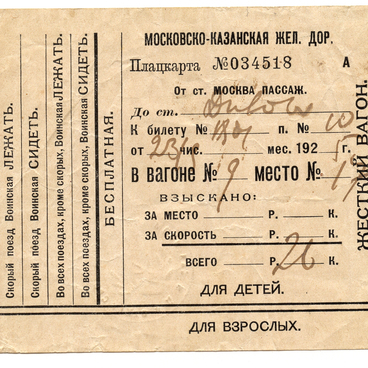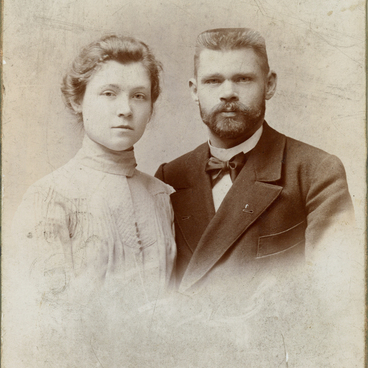This autograph was left by Sergei Esenin on the letterheads of The Bakinsky Worker newspaper. Before getting to the museum collection, it was kept in the archive of Petr Chagin, well-known Soviet journalist, literary figure, and one of the closest friends of the poet during 1920s. He authored the preface to the Soviet Rus collection of verses (1925) and edited the famous ‘uncensored’ Selected Writings of the poet. Esenin highly appreciated Chagin and often adhered his literary recommendations. He provided his collection of verses Persian Motives with the dedication: ‘To Petr Ivanovich Chagin with love and friendship’. The ‘Stanzas’ was also dedicated to him.
This poem published on the pages of the ‘Bakinsky Worker’ newspaper in 1925 was dedicated to Roza Chagina, a six-year-old daughter of Petr Chagin, who called herself ‘Gelia Nikolayevna’ in honour of the actress. ‘Everybody around jokingly called her so, — recalled Sophia Tolstaya-Esenina, the last poet’s wife. — Esenin adored and understood children and he and this girl were great friends’. When Esenin was preparing the complete works, he removed this dedication.
On the newspaper letterhead the poet had written: “Dear Gelia, forgive me. There can be many roses on the way, many roses bend, but only one can smile with the heart. Let”s now smile together. You and I. For such dear lands. Wind from the sea, blow quieter — do you hear, the nightingale is calling the rose? Blue and merry land. Let my whole life be sold for a song, but for Gelia in branches shade the nightingale is embracing the rose…”
Literary scholar Victor Manuilov recalled: “I time and again saw drafts of the poems written on the letterheads of The Bakinsky Worker newspaper and even on the letterheads of letterheads of the Central Committee of the Communist Party of Azerbaijan. It gave him particular pleasure to write verses on official letterheads. And it was not only because the paper was really good, but a sort of childish boasting: “I write verses on such high-level letterheads! Can you believe this?” At the same time, naïve modesty of Yesenin could be seen here, as if the poems became more significant because they were written on these letterheads! ’
This poem published on the pages of the ‘Bakinsky Worker’ newspaper in 1925 was dedicated to Roza Chagina, a six-year-old daughter of Petr Chagin, who called herself ‘Gelia Nikolayevna’ in honour of the actress. ‘Everybody around jokingly called her so, — recalled Sophia Tolstaya-Esenina, the last poet’s wife. — Esenin adored and understood children and he and this girl were great friends’. When Esenin was preparing the complete works, he removed this dedication.
On the newspaper letterhead the poet had written: “Dear Gelia, forgive me. There can be many roses on the way, many roses bend, but only one can smile with the heart. Let”s now smile together. You and I. For such dear lands. Wind from the sea, blow quieter — do you hear, the nightingale is calling the rose? Blue and merry land. Let my whole life be sold for a song, but for Gelia in branches shade the nightingale is embracing the rose…”
Literary scholar Victor Manuilov recalled: “I time and again saw drafts of the poems written on the letterheads of The Bakinsky Worker newspaper and even on the letterheads of letterheads of the Central Committee of the Communist Party of Azerbaijan. It gave him particular pleasure to write verses on official letterheads. And it was not only because the paper was really good, but a sort of childish boasting: “I write verses on such high-level letterheads! Can you believe this?” At the same time, naïve modesty of Yesenin could be seen here, as if the poems became more significant because they were written on these letterheads! ’





